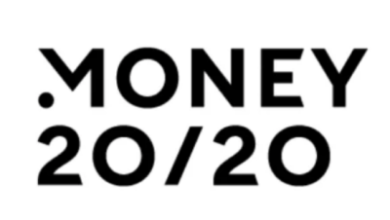The Top Trends Shaping The FinTech industry

By Dmitrij Pruglo, Finyard Group CEO
The global FinTech market continues to expand at a staggering pace. Valued at $294 billion in 2023, it’s projected to reach $1.15 trillion by 2032, growing at a compound annual growth rate (CAGR) of 16.5%.
This explosive growth reflects the seismic shifts transforming financial services as cutting-edge technologies and evolving consumer expectations collide.
At Finyard, an innovative software solutions provider helping brands deliver advanced FinTech applications, we’ve witnessed these disruptive forces firsthand. Several key trends are driving the industry’s future trajectory. Understanding their implications is essential for any FinTech firm aiming to remain competitive.
Generative AI goes mainstream
Artificial intelligence (AI) has long been a FinTech fixture, but generative AI represents a transformative leap forward. By creating new content, code, images and more from learned patterns, generative AI models like GPT-3 open exciting doors.
Generative AI has the power to hyper-personalise user experiences, automate complex processes, and surface predictive insights. As the technology matures, it will reshape how people interact with financial services.
Blockchain becomes foundational
After years of hype, blockchain is primed for wide scale FinTech adoption. The technology’s decentralised, transparent nature makes it ideal for securely recording transactions, executing smart contracts, and tokenizing assets.
Blockchain integrations can offer instant cross-border payments, automated compliance, and fractional investing in real estate and other illiquid assets. Industry giants like JPMorgan and Visa are heavily investing in it. As ecosystem maturity grows, expect blockchain to become a cornerstone of financial infrastructure.
DeFi disrupts traditional finance
Decentralised finance (DeFi) is perhaps blockchain’s most revolutionary application. By removing intermediaries and gatekeepers, DeFi platforms let users access an expansive array of financial services – from loans to insurance to savings – directly and without permissions.
While still nascent, DeFi’s growth has been meteoric, with total value locked surging from under $1 billion to over $200 billion in two years. Its open, composable architecture enables unprecedented innovation, such as yield farming and flash loans.
Hurdles remain around scalability, regulation and risk, but DeFi’s promise of democratised access is too significant to ignore. Expect to see more bridges emerge between centralised and decentralised finance.
Cybersecurity becomes paramount
As FinTech services handle ever-growing troves of sensitive data and value, safeguarding them from mushrooming cyber threats is critical. A single breach can shatter user trust and brand equity.
Robust cybersecurity should be a top priority for any company. This includes multi-layered defences such as encryption, multi-factor authentication, behavioural analytics, and continuous monitoring. Zero-trust architectures and AI-powered threat detection are other rising industry best practices.
But technology alone isn’t enough. As digital finance grows ubiquitous, firms must also promote cyber hygiene through user education and transparency. Collaboration and intelligence sharing will be key to thwarting attackers. Cybersecurity isn’t a destination but an endless journey demanding constant vigilance.
Gamification boosts engagement
With countless digital services vying for attention, FinTech platforms are turning to gamification to stand out and boost retention. By applying game-like elements such as points, badges, leaderboards and rewards, firms can make managing money more engaging and intuitive.
Gamification has been especially prevalent in Stock trading, banking and financial literacy apps. Robinhood’s addictive interface and Duolingo’s language lessons are prime examples of how it can drive desired behaviours.
Gamification can be integrated to simplify complex topics, motivate users, and build enduring relationships. The key is enhancing value, not superficially slapping on video game elements. When thoughtfully applied, gamification can be a potent differentiator.
Looking ahead
The coming years will undoubtedly bring relentless change as new technologies converge and consumer demands shift. To stay ahead, FinTech firms must remain agile, attuned to emerging trends, and willing to experiment.
At Finyard, our culture of innovation keeps us on the cutting edge. By continually pushing boundaries, proactively partnering, and putting users first, we aim not just to adapt to the future, but to shape it.
Whoever defines the next generation of FinTech services will have an outsized role in empowering economic mobility and prosperity worldwide. We intend to seize that mantle, guided by an unwavering belief in technology’s potential to drive positive transformation.
Only by working together – as an industry and society – can we build a financial system that is more inclusive, efficient and secure. The journey forward will be challenging, but the destination of greater shared wellbeing will be well worth it.
Author’s Bio
Dmitrij Pruglo, Finyard Group CEO
Dmitrij Pruglo has over 18 years’ experience in the financial services industry. He has acquired deep knowledge of most asset classes, including FX, Options, Futures, Equities, Commodities, and complex OTC-structured and fixed-income products. Dmitrij has spent close to a decade building and leading very successful software development companies. After gaining invaluable expertise at renowned institutions like SEB Bank and Saxo Bank, Dmitrij refocused on financial software engineering in 2016. By merging his knowledge of software development with his background in finance, and maintaining a commitment to staying updated on the latest FinTech trends, Dmitrij has emerged as the CEO of Finyard.



